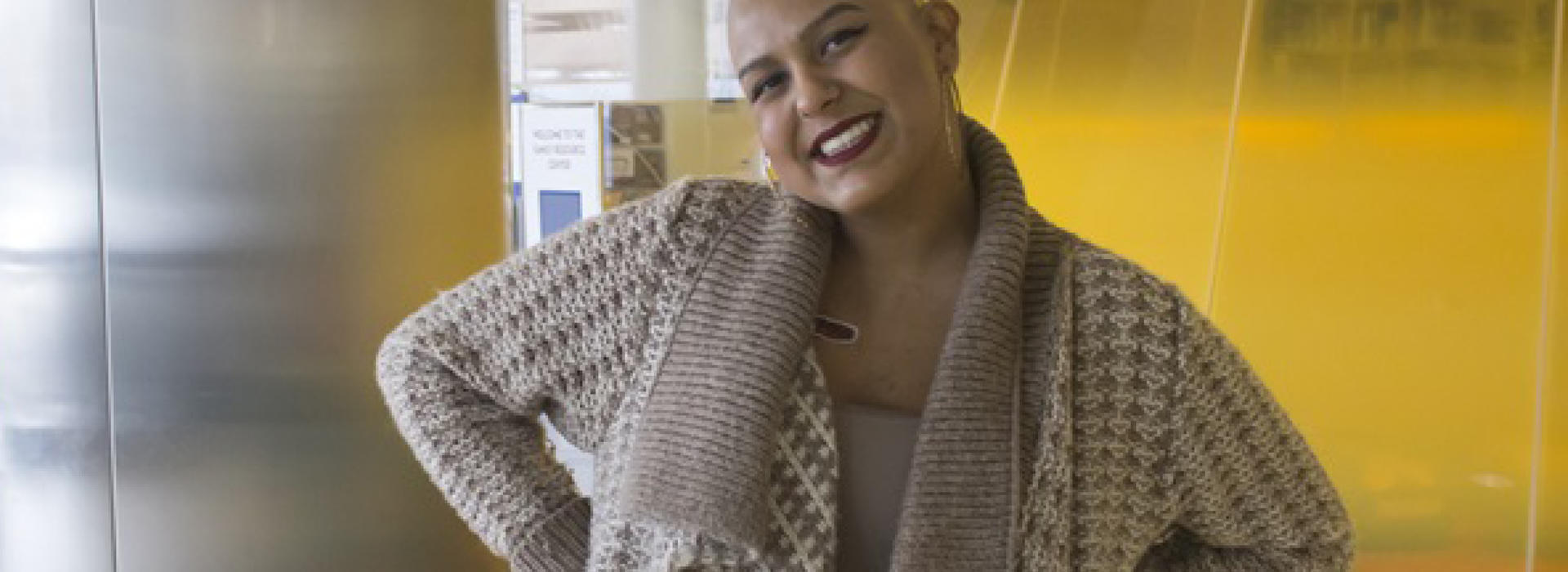
In the Midst of Brain Cancer Treatment, Young Woman Makes Selfless Commitment to Help Others
18-year-old Catarina Gómez began college with a ten-year plan. Passionate about immigration law and other social justice causes, her intention was to become an immigration attorney and from there, launch a career in politics.
But life had other plans. In the middle of her freshman year, she was diagnosed with a rare pediatric brain tumor, called an ependymoma— a type of brain cancer that can affect the brain stem or spinal cord.
“I was reading through the paper and saw the word ‘shampoo.’ I read it and understood the concept, but I couldn’t pronounce it. Then half of my face went numb. I thought I was having a stroke,” said Gómez.
A scan at the hospital in Iowa showed she needed medical care immediately. Surgeons successfully removed most of her tumor, but Gómez required additional radiation therapy to ensure the cancer didn’t return. Her Iowa team referred her to University of Minnesota Medical School Pediatric Neuro-Oncologist Christopher Moertel, MD, a widely recognized expert on pediatric brain tumors.
“All pediatric brain tumors are rare, but within the universe of pediatric brain tumors, ependymomas are rarer still,” said Moertel, who treated Gómez when she arrived at University of Minnesota Masonic Children’s Hospital in late 2017.
But perhaps even more unique, was what Gómez decided to do with that diagnosis. She decided to sign up for a national clinical trial which is testing to see if a combination of radiation therapy and chemotherapy may further reduce the risk of recurrence in ependymoma. For Gómez, that meant additional chemotherapy after her completed radiation, but her participation in the study could help others diagnosed with the disease.
“There’s no way for us to step forward [toward a cure] without research and testing,” Gómez said. “Besides this, I’ve been healthy my whole life. I would much rather deal with chemotherapy than see another child, a 4- or 5-year-old, go through that.”
Gómez’ selflessness left an impression on Moertel.
“This was a real act of courage,” Moertel said. “I have a deep appreciation for those individuals and families who participate in these clinical trials. Without them, we wouldn’t get the answers that can help the next generation of patients.”
Now, Gómez is done with her chemotherapy treatment. Though she could face later complications—or a recurrence of cancer—her current outlook is bright.
Her experience has also given her a new outlook on life, and on her 10-year plan. Now, she is strongly considering Medical School, and the place she most hopes to receive that education: the University of Minnesota Medical School.
“I love working with everybody at the University of Minnesota,” she said. “Their care and support really were unlike anything else I have ever experienced.”